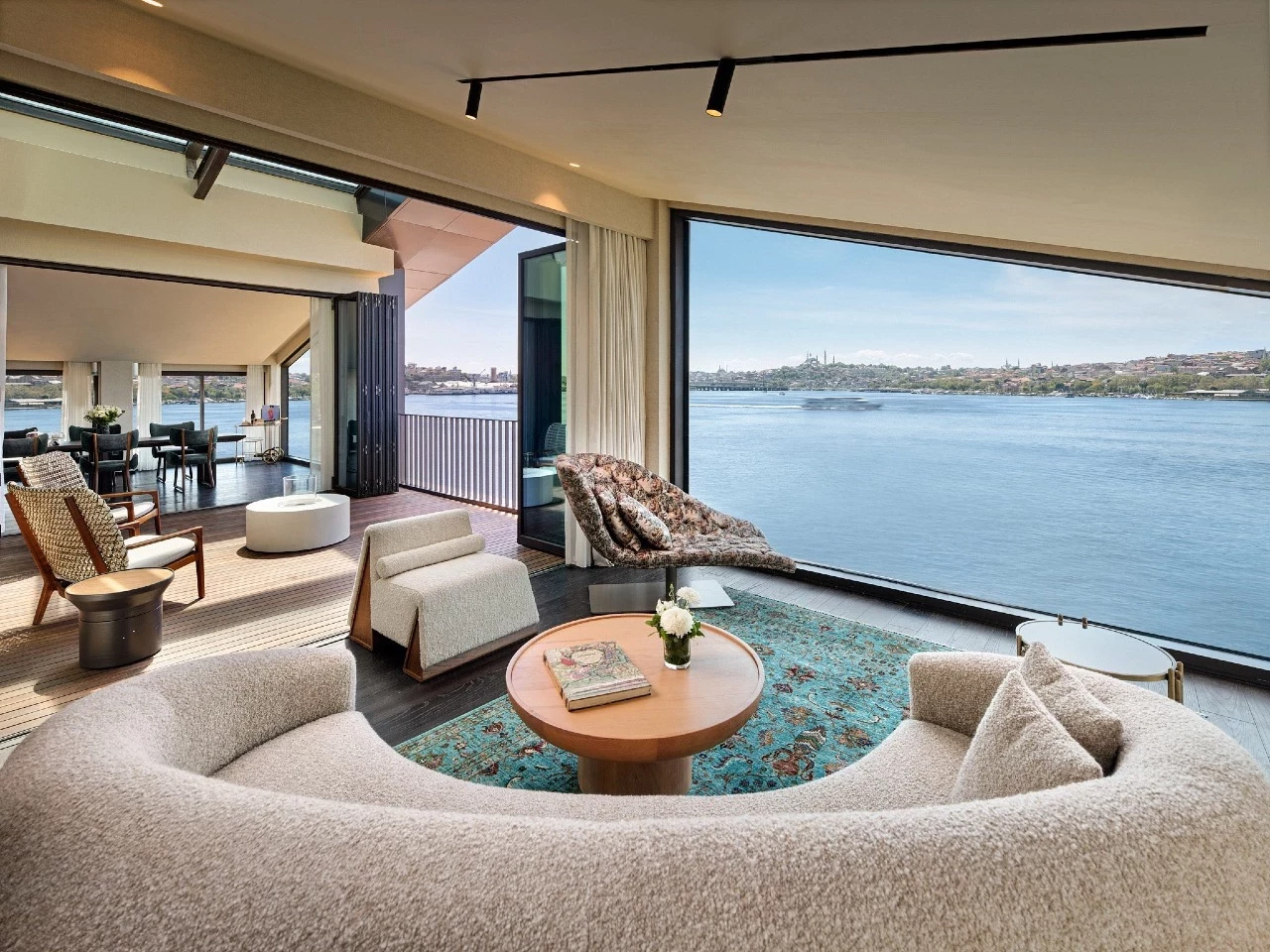Aliée Istanbul And Reimagining Heritage Spaces


Along the storied banks of the Golden Horn, where Byzantine shipyards once bustled and Ottoman merchants traded, a new chapter of urban life has quietly opened. Aliée Istanbul, part of the city’s larger Tersane redevelopment, is less a conventional hotel than an experiment in how historical spaces can be reimagined for contemporary living.
The project is a collaboration with Paris Society, a French hospitality group known for cultural venues and dining concepts across Europe. But in Istanbul, the approach takes a different turn. Aliée describes itself as a “house of curious minds,” a phrase intended to reflect a desire for connection beyond tourism — though how that plays out remains to be seen.
The setting itself carries layers of significance. Tersane Istanbul, once an Ottoman shipyard, is now the focus of a large-scale urban renewal effort that has prompted both anticipation and debate over the future of the Golden Horn’s historic waterfront. Aliée occupies several heritage structures within this zone, restored under the direction of Los Angeles-based Powerstrip Studio, known for its adaptive reuse of historic buildings.
Inside, the property is divided into four distinct buildings — each with its own architectural story. The Casthouse, with its stone walls and high ceilings, echoes the district’s industrial past. The Foundry offers panoramic views across the water, while the Atelier brings a more modern aesthetic of glass and metallic accents. The Heritage Villa, once a Turkish bath, has been repurposed as a private residence with contemporary amenities.
Beyond its architecture, Aliée positions itself as a residential retreat rather than a traditional hotel. Details such as Turkish rugs, curated art, and custom scents by Italian perfumer Oscar Quagliarini are intended to evoke a sense of lived-in character. The project’s design leans heavily on contrasts — old and new, East and West — reflecting Istanbul’s identity as a city of intersections.
Dining plays a central role in the experience, with a dozen food and beverage venues that range from a casual patisserie to a formal restaurant headed by Thomas Bühner, a German chef known for his Michelin-starred work. Among the more informal spaces is Hasbahçe, a garden terrace serving pizza from a traditional oven, and Mondaine de Pariso Istanbul, a cabaret-style venue nodding to 19th-century Parisian nightlife.
The cultural offerings extend beyond dining. Aliée organizes gallery visits, art workshops, and curated tours aimed at providing access to aspects of the city’s creative life not always visible to visitors. A wellness center, spread over 4,000 square meters, offers both traditional Turkish hammam rituals and newer biohacking therapies such as cryotherapy and infrared treatments.
If there is a theme running through Aliée’s approach, it is the idea of hospitality as a form of cultural dialogue rather than commercial transaction. Yet the project also raises questions familiar in global cities — about the commercialization of historic districts, the line between cultural appreciation and lifestyle branding, and how much authenticity survives when heritage is repackaged for contemporary tastes.
For Istanbul, a city where past and present are often in uneasy coexistence, Aliée represents both a reflection of global hospitality trends and a localized attempt at reinterpretation. Whether it will serve as a meaningful cultural bridge or simply another luxury enclave remains a story still unfolding on the shores of the Golden Horn.
The views and opinions expressed herein are the views and opinions of the author and do not necessarily reflect those of The Monegasque™.
Disclosure: The Monegasque™ enhances the editing process with the help of carefully selected AI tools. These tools provide valuable support without taking over the editing process completely, ensuring that the final product is the result of human creativity and expertise augmented by the benefits of enhanced technology. This article is protected under the copyright of The Monegasque™. Unauthorized reprinting, republishing, or rewriting of this content is strictly prohibited without explicit permission from The Monegasque™. Quotations from this material are permissible provided that a direct link to the full article on The Monegasque™ is included.